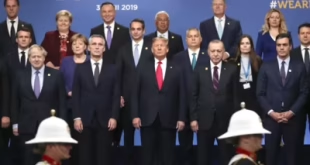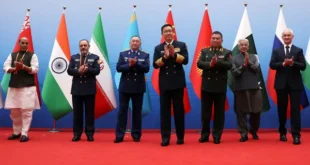- The Supreme Court flagged the possibility of misuse of money received by political parties through electoral bonds for ulterior objects like funding terror or violent protests.
- The court also asked the government whether there is any “control” over how these donations were used by political parties.
Electoral Bond
- Electoral Bond is a financial instrument for making donations to political parties.
- The bonds are issued in multiples of Rs. 1,000, Rs. 10,000, Rs. 1 lakh, Rs. 10 lakh and Rs. 1 crore without any maximum limit.
- State Bank of India is authorised to issue and encash these bonds, which are valid for fifteen days from the date of issuance.
- These bonds are redeemable in the designated account of a registered political party.
- The bonds are available for purchase by any person (who is a citizen of India or incorporated or established in India) for a period of ten days each in the months of January, April, July and October as may be specified by the Central Government.
- A person being an individual can buy bonds, either singly or jointly with other individuals.
- Donor’s name is not mentioned on the bond.
Key Points
- The Electoral Bond Scheme acts as a check against traditional under-the-table donations as it insists on cheque and digital paper trails of transactions, however, several key provisions of the scheme make it highly controversial.
- Neither the donor (who could be an individual or a corporate) nor the political party is obligated to reveal whom the donation comes from.
- Asymmetrically Opaque: Because the bonds are purchased through the State Bank of India (SBI), the government is always in a position to know who the donor is.
- This asymmetry of information threatens to colour the process in favour of whichever political party is ruling at the time.
- Chanel of Blackmoney: Elimination of a cap of 7.5% on corporate donations, elimination of requirement to reveal political contributions in profit and loss statements and also the elimination of the provision that a corporation must be three years in existence, undercuts the intent of the scheme.
- A shell company can donate an unlimited amount anonymously to a political party giving it a convenient channel for business to round-trip its cash parked in tax havens for a favour or advantage granted in return for something.
Government’s Defence:
- Conditions for Electoral Bonds: Only parties registered under the Representation of the People Act 1951 could receive donations through electoral bonds, and they also should not have secured less than 1% of the votes polled in the previous elections.
- To Take on the Menace of Black Money in Politics: Only white money is involved in the Bonds as the amounts are paid only through cheque or demand draft.
- KYC norms are also followed.
- Election Commision of India’s Support: ECI was not opposed to the bonds but was only concerned about the aspect of anonymity.
- It also urged the court not to stay the bonds and said the scheme is one step forward compared to the old system of cash funding, which was unaccountable.
Way Forward
- There is a need for effective regulation of political financing along with bold reforms to break the vicious cycle of corruption and erosion of quality of democratic polity.
- It is crucial to plug the loopholes in the current laws to make the entire governance machinery more accountable and transparent.
- Voters can also help bring in substantial changes by demanding awareness campaigns. If voters reject candidates and parties that overspend or bribe them, democracy would move a step higher.
SOURCE: THE HINDU,MINT
 Chinmaya IAS Academy – Current Affairs Chinmaya IAS Academy – Current Affairs
Chinmaya IAS Academy – Current Affairs Chinmaya IAS Academy – Current Affairs



